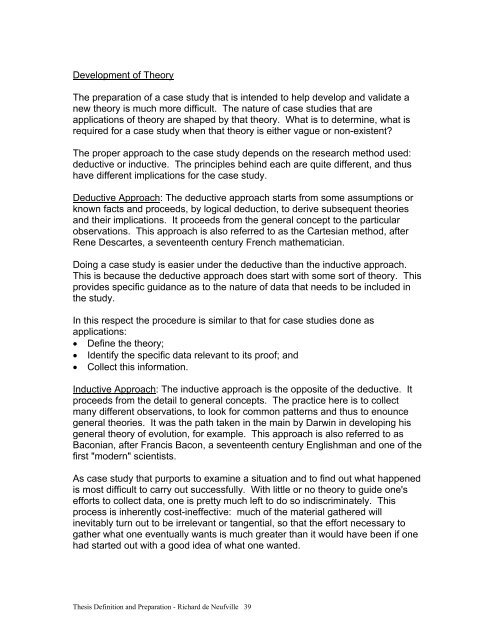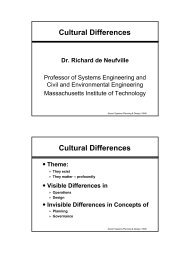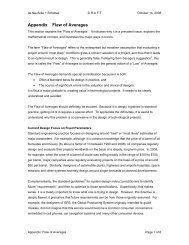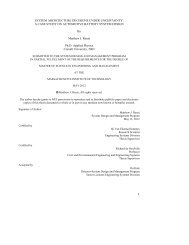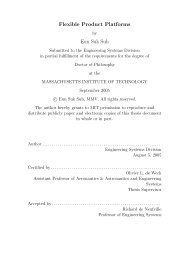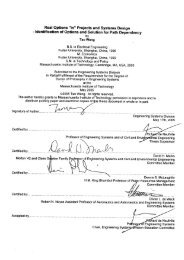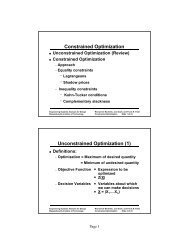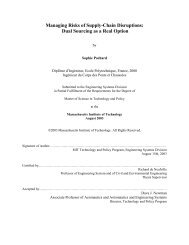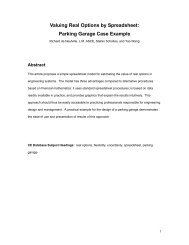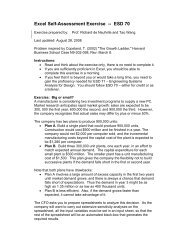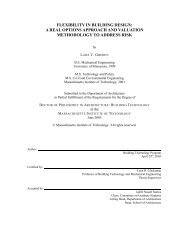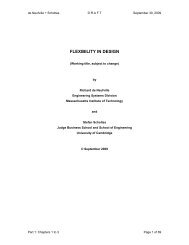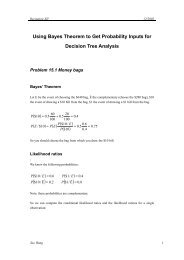Richard de Neufville's TPP SM Thesis Manual - Title Page - MIT
Richard de Neufville's TPP SM Thesis Manual - Title Page - MIT
Richard de Neufville's TPP SM Thesis Manual - Title Page - MIT
- No tags were found...
You also want an ePaper? Increase the reach of your titles
YUMPU automatically turns print PDFs into web optimized ePapers that Google loves.
Development of TheoryThe preparation of a case study that is inten<strong>de</strong>d to help <strong>de</strong>velop and validate anew theory is much more difficult. The nature of case studies that areapplications of theory are shaped by that theory. What is to <strong>de</strong>termine, what isrequired for a case study when that theory is either vague or non-existent?The proper approach to the case study <strong>de</strong>pends on the research method used:<strong>de</strong>ductive or inductive. The principles behind each are quite different, and thushave different implications for the case study.Deductive Approach: The <strong>de</strong>ductive approach starts from some assumptions orknown facts and proceeds, by logical <strong>de</strong>duction, to <strong>de</strong>rive subsequent theoriesand their implications. It proceeds from the general concept to the particularobservations. This approach is also referred to as the Cartesian method, afterRene Descartes, a seventeenth century French mathematician.Doing a case study is easier un<strong>de</strong>r the <strong>de</strong>ductive than the inductive approach.This is because the <strong>de</strong>ductive approach does start with some sort of theory. Thisprovi<strong>de</strong>s specific guidance as to the nature of data that needs to be inclu<strong>de</strong>d inthe study.In this respect the procedure is similar to that for case studies done asapplications:• Define the theory;• I<strong>de</strong>ntify the specific data relevant to its proof; and• Collect this information.Inductive Approach: The inductive approach is the opposite of the <strong>de</strong>ductive. Itproceeds from the <strong>de</strong>tail to general concepts. The practice here is to collectmany different observations, to look for common patterns and thus to enouncegeneral theories. It was the path taken in the main by Darwin in <strong>de</strong>veloping hisgeneral theory of evolution, for example. This approach is also referred to asBaconian, after Francis Bacon, a seventeenth century Englishman and one of thefirst "mo<strong>de</strong>rn" scientists.As case study that purports to examine a situation and to find out what happenedis most difficult to carry out successfully. With little or no theory to gui<strong>de</strong> one'sefforts to collect data, one is pretty much left to do so indiscriminately. Thisprocess is inherently cost-ineffective: much of the material gathered willinevitably turn out to be irrelevant or tangential, so that the effort necessary togather what one eventually wants is much greater than it would have been if onehad started out with a good i<strong>de</strong>a of what one wanted.<strong>Thesis</strong> Definition and Preparation - <strong>Richard</strong> <strong>de</strong> Neufville 39


